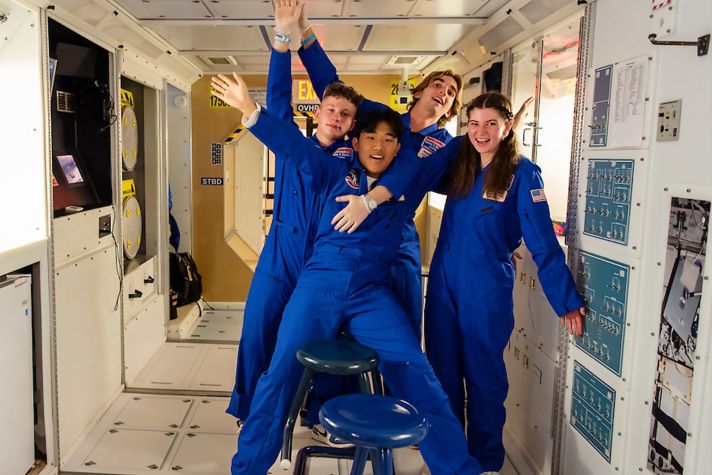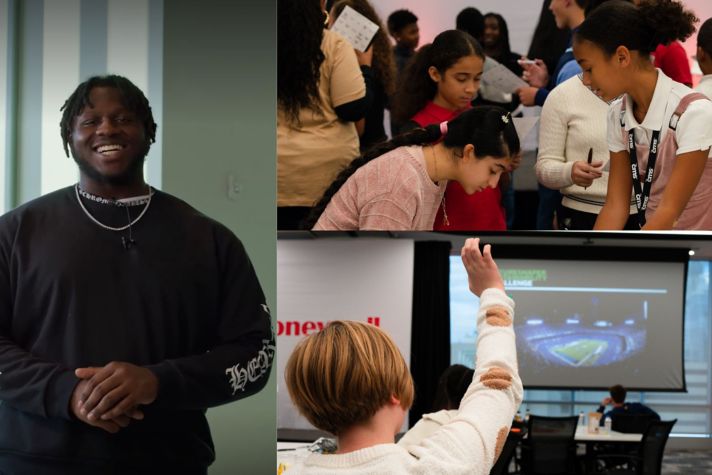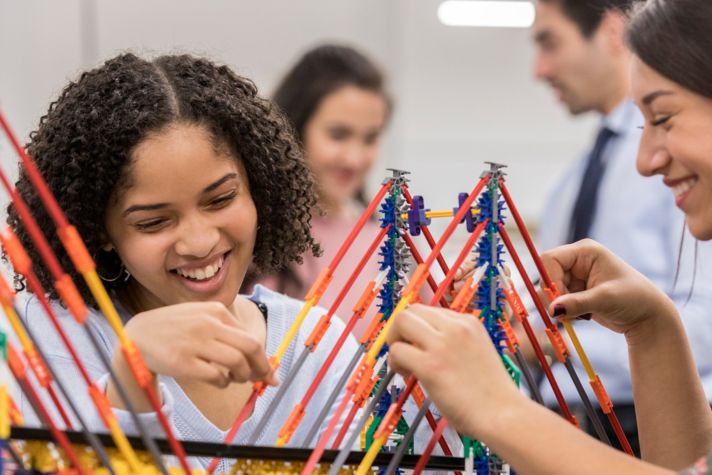-
 Global
Global-
Africa
-
Asia Pacific
-
Europe
-
Latin America
-
Middle East
-
North America
- |
- BUSINESSES
- |
- Contact
- |
-
 Global
Global-
Africa
-
Asia Pacific
-
Europe
-
Latin America
-
Middle East
-
North America
- |
- BUSINESSES
- |
- Contact
- |
You are browsing the product catalog for
- News
- Students Think Big About Sustainability at Stadiums
Students Think Big About Sustainability at Stadiums
Students in Charlotte dreamt up ways to implement circularity, renewable energy and other sustainability principles into football game day.
When it comes to solving some of the world’s toughest sustainability challenges, sixth, seventh and eighth graders in Charlotte have big ideas.
They put their creativity to work as part of the Futureshaper Sustainability Challenge, a program hosted as a partnership between Honeywell; the Carolina Panthers, part of the National Football League (NFL); and education nonprofit Digi-Bridge. The task: Develop solutions to make gamedays more sustainable.
Throughout the curriculum, students gathered insights from mentors at Honeywell and the Carolina Panthers who specialize in building operations and sustainable technologies. Working in groups, students concluded the program by presenting their proposals to a panel of judges from Honeywell, Digi-Bridge, and the Carolina Panthers – including Panthers player Ikem “Ickey” Ekwonu.
Some teams dreamt up ways to implement aspects of circularity into game days and stadium operations. Others thought of plans to introduce new technologies, like robots that educate fans on sustainability practices.
Read on to learn about the winning ideas:
1st Place: Turning Trash into Fuel
The team from Lake Norman Charter School addressed the issue of discarded peanut shells at the stadium. Recognizing the environmental impact and cleanup resources involved, the project introduced a biodegradable container for fans to responsibly store shells. The initiative also incorporated an incentive program for using designated collection machines, leading to the transformation of disposed shells into biofuel to power the stadium. This holistic solution not only minimizes waste but also exemplifies a sustainable cycle from consumption to energy generation.
2nd Place: Sustaining with Aquaponics
Students from Walter G. Byers School created a groundbreaking aquaponics farming technology designed for utilization at Bank of America Stadium. This innovative system addresses the constraints of urban spaces by providing a sustainable and natural means of producing organic food, encompassing both protein and vegetables. The project not only champions self-sufficiency but also offers an exemplary model for integrating environmentally conscious practices into stadium operations.
3rd Place: Implementing a Composting System
The team from Piedmont Middle School tackled the challenge of game day food waste. The team's composting plan not only maximized composting efficiency for future Carolina Panthers games but also minimized environmental impact, redirecting surplus food to support local food agencies in Charlotte. Their innovative approach showcased a sustainable solution that harmonizes sports events with environmental stewardship and community support.
Check out the video below for more highlights from the program.
Copyright © 2024 Honeywell International Inc.





